Why we at ISICO “talk in front of the children”: the importance of patient participation
Although “talking in front of the children” is a deliberate “policy choice” on the part of our organisation, we are sometimes criticised for it in quality assessment questionnaires. Some parents, for various reasons, like to have a separate consultation with us, either before or after seeing the patient, but as doctors and therapists, this request always makes us uncomfortable. Let us explain why.
Scoliosis treatment, whether we are talking about boring exercises, a bulky brace, or even a delicate and risky surgical operation, is always invasive to some degree. Therefore it is crucial to ensure we have the patient’s conscious and willing participation. After all, exercises must be done actively and carefully, a brace must be worn, and kept tightly fastened, for many hours at a time, sometimes even round the clock, and the surgical option is invasive and painful and also has permanent consequences.
How many of us would be willing even to consider undertaking an invasive treatment without first understanding why we need it and what the implications are if we do (or don’t) go ahead with it, and above all without being sufficiently motivated? What’s more, with scoliosis, there is also another consideration.
Whenever scoliosis occurs, the worst stage is always during adolescence. This is the period in our life when our personality is formed and when, as individuals, we distinguish ourselves from our parents, who remain key figures in our lives but from whom, to a greater or lesser degree, we need to break away.
It is when the first parent-child conflicts arise, usually with the parent of the same sex, and sometimes with both. It is the moment we really discover our own body and the other sex, a period more or less marked by hormonal impulses.
Youngsters of this age will usually be very resistant to anything concerning them that is done or decided without their consent or involvement: in this particular case, we are talking about an aspect of their health, about their body (with which they may already have a tricky relationship, and what more personal and private aspect of life can there be than our body?), and about a treatment that always difficult and invasive to some degree.
A further element in all this is the therapeutic alliance that is formed between the doctor and the patient, often with the mediation of parents, but never without involving the patient. If a doctor struggles to talk to the patient directly, perhaps looking the parents in the eyes and only covertly glancing at the patient, pretending to address the adults present, but really directing the conversation at an adolescent who is pretending not to hear, then the whole patient-doctor relationship, the crucial basis of any therapeutic alliance, will fail. And if this alliance cannot be formed, then nothing can be achieved.
In establishing the therapeutic alliance, it is necessary to set out the sacrifices involved, perhaps trying to sweeten the pill a little to reach the required agreement. And this agreement must be between two people: the doctor and the patient.
I, too, am a parent, and I well understand the importance we parents attach to our children’s wellbeing.
I would love to spare them life’s difficulties, but I know that the key thing, instead, is to prepare them to face them.
I know that the main thing is to ensure they find the right help so that they can face difficulties head-on rather than just endure them. Because what matters in life, even more than the result, is how we deal with things along the way: we all know that you can’t win all of the time, but if you give up before you even start, you will never win at all. Illness, especially one that occurs early on, when a young person is still growing, is undoubtedly a tough test, but, despite themselves, youngsters can find it becomes a formidable tool allowing them to grow with a balanced mindset, able to recognise the importance of external help and to find, deep inside themselves, the resources they need to cope with the treatment they need.
We, parents, are often the first to underestimate just how strong our children can be. We try to protect them, thinking we’re helping them, when our job is not to stand in for them but rather to make them independent, able to take flight by themselves and face any difficulties they may encounter. We need to be willing to let our children and teens amaze us, which means we must stop continually thinking that they are too small to understand (the Little Prince said the same thing!).
Secrets, above all, are to be avoided in this setting, and the patient will always interpret any private meetings between the doctor and the parents as “secrets” being discussed behind their backs.
And what about younger children? In scoliosis treatment, as in other settings, today’s children are tomorrow’s adolescents, and building a relationship with an adolescent should start in childhood. And we can assure you that children are just as attentive as teenagers are, even though their tranquillity and peace of mind will depend on their parents achieving and conveying the same.
Sometimes it is the children who would instead escape from the situation and leave their parents to gather all the information about the treatment they face. Still, such children tend to be already fearful, anxious and distressed, which makes it even more important to reassure them and involve them. Not in an aggressive or overbearing way, of course, but always bearing in mind and respecting their inner pain. And the parents’ role is crucial in all of this.
In short, there can be no going behind our young patients’ backs: to do so is wrong and counterproductive, as it undermines the relationship that must be formed with the person at the centre of the treatment: the patient. Talking openly demands care and sensitivity, and we always remember this and routinely show both to whoever seeks our help. We weigh our words carefully, especially considering the most delicate participant in our discussions: the patient.
Over the years, we have learned that a good patient can overcome the disadvantage of absent parents, whereas no parent, however good they are, can ever make up for the absence of the patient, who is the true and only protagonist of scoliosis treatment.


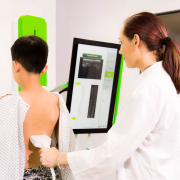
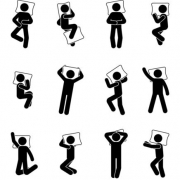

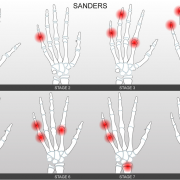
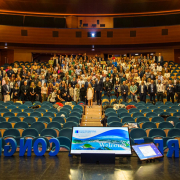
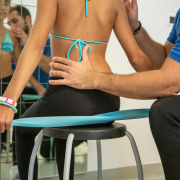
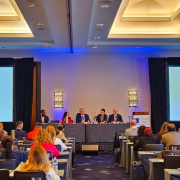


Leave a Reply
Want to join the discussion?Feel free to contribute!